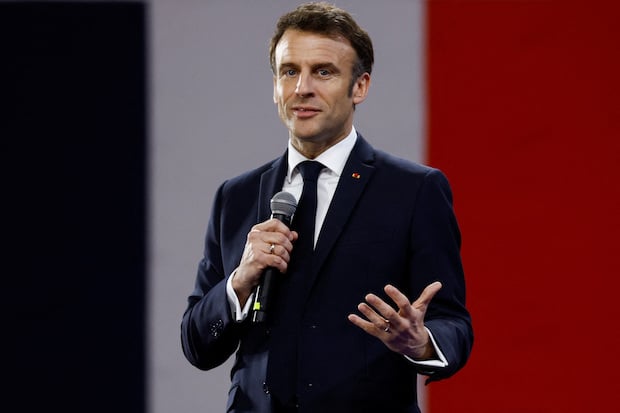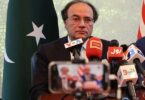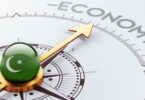French President Emmanuel Macron has declared that Europe had no interest in an acceleration of the crisis over Taiwan and should pursue a strategy independent of both Washington and Beijing. According to the French President, the worst thing would be that the Europeans become adapt to the American rhythm or a Chinese overreaction regarding the Taiwan dispute. Macron advised Europe to fund its defense industry, develop nuclear and renewable energy and reduce dependence on the American dollar to limit its reliance on the United States. Macron categorically mentioned that the EU member states should avoid becoming vassals and that the bloc could function as a third pole in geopolitics alongside the United States and China.
Recently, President Emmanuel Macron paid a three-day state visit to China along with European Commission President Ursala Van Der Leyen, high-ranking EU officials, and a 50-member strong business delegation of the French industrial giants to lay new foundations of trade and economic cooperation with the second largest economy of the world. The stated purpose of this visit was to bring new vitality to Beijing-Brussels ties along with convincing Beijing to adopt a bigger role in ending the yearlong Russian aggression against Ukraine. Meanwhile, Macron’s visit to Beijing owes tremendous importance for Paris to consolidate its trade partnership with Beijing amid dwindling bilateral ties between China and European Union. Historically, Franch-Chinese trade and the economic partnership grew rapidly under Macron and both nations struck a $40 billion trade deal in March 2019 amid an inflamed US-China trade war and the EU’s concerns regarding Beijing’s monopoly in EU-China bilateral trade.
French President and European Commission President Ursala Van Der Leyen had made a great diplomatic offensive to reset EU-China economic relations and secure Beijing’s support to end the war in Ukraine. Although it was a successful comeback of the French President regarding France-China ties yet it might be a counterproductive maneuver in respect of a viable solution to the Ukraine war because many Western nations including the US, and the UK are strong opponents to any proposed Chinese role in Ukraine conflict, meanwhile, normalization of EU-China trade and economic ties does not suit to global interests of a western nation, hence its prospects are very limited.
In a wider global geostrategic matrix, Macron-led France is circumspect about the enhanced US role in European domestic and external affairs particularly Europe trade and foreign relations with the rest of the world. French President had been a vocal supporter of the EU’s independent foreign policy, strategic autonomy, military preparedness, and self-sufficiency in the defense industry to reduce its reliance on the US war machine. Interestingly, Macron’s quest for Europe’s total sovereignty was doubled down after the United States and the UK betrayed their European ally by concluding the AUKUS Security Pact with Australia which completely scraped France’s billions of dollar Submarines construction deal with Canberra.
Emmanuel Jean-Michael Macron, a young revolutionary French politician had always taken a solitary flight in French politics and proved worthless of his bold ideas and visionary leadership throughout his political career. He has been a strong advocate of economic, social, and security reforms in the European Union along with an outright overhauling and liberalization of the NATO alliance that was experiencing a brain dead due to the US’s unrestricted control of 30 nations’ collective security alliance. Historically, multiple European nations remained concerned about the EU’s blind following of Washington in global affairs that not only pushed the bloc into US-ignited global wars but also cost billions of dollars of hard-earned taxpayers’ money in defense spending and tarnished the EU image in the world. Now, President Macron had raised a strong voice for EU liberation from American influence and supported global trade and economic cooperation instead of trade rivalries, however, European sick men and leading economies, including Great Britain and Germany are less likely to support Marcon’s idea because independence and sovereignty demand boldness and sacrifice, which is dearly lacked by European nations. Although, Macron’s idea is more relevant and offers the utmost prospects for peace and stability in a highly volatile world, however, a sane voice is less like to affect the minds of determined jingoists in the West.







